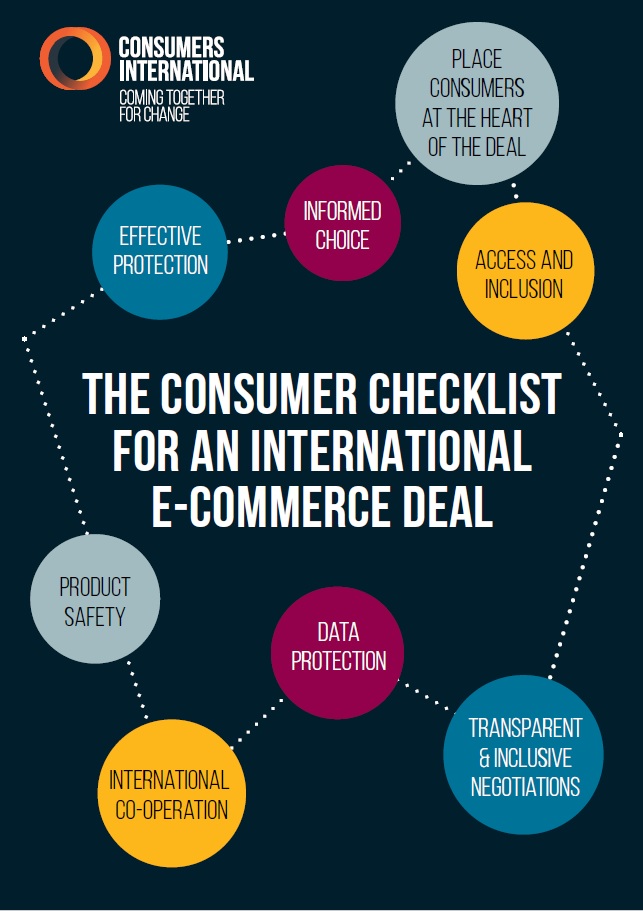Consumer groups worldwide urge WTO discussions on e-commerce to promote trust in online shopping
Consumer groups worldwide urge WTO discussions on e-commerce to promote trust in online shopping
BEUC NEWS – 09.10.2018
E-commerce would not be the success it is without consumers: its continued growth depends on their trust. Now that the World Trade Organisation (WTO) wishes to “reinvigorate its work” on cross-border e-commerce, consumer groups across the globe have joined forces through Consumers International (CI) and stress that consumers must be protected, and benefit from it.
In 2017, research by German consumer group Verbraucherzentrale Bundesverband (vzbv) and BEUC1 showed that European consumers face significant hurdles when shopping online outside the EU. It sheds light on why consumer trust in global online shopping is lower compared to purchases from their own country or the EU.
This is a problem because e-commerce, by its very nature, is global. Discussions on it take place at the WTO. And this could very well result in international trade negotiations on e-commerce. A meeting of American, EU and Japanese trade ministers in September underlines this likelihood.
This is why consumer groups worldwide are urging WTO representatives to use such discussions to promote consumer trust in e-commerce.
What consumer groups expect from e-commerce discussions at the WTO
Last week, representatives of CI and vzbv voiced consumer groups’ concerns at the WTO Public Forum in Geneva and presented a checklist for addressing them. The starting point is that discussions at the WTO must be open, so people can know what’s being negotiated on their behalf.
We recommend countries’ WTO representatives to consider the following proposals:
-
Any international agreement on e-commerce should dedicate a chapter to consumer issues. Here, trading partners commit to maintain consumer protections and roll-out benefits.
-
Consumers buying online should have information about what they buy presented in a clear, accurate, easily accessible and conspicuous way.
-
The needs of marginalised or vulnerable consumers and consumers with disabilities should be considered in website design and processes such as payments and delivery.
-
Consumers must be treated fairly and be afforded protection that is not less than in other forms of commerce. For example, they must be able to explicitly agree to a purchase and receive a receipt.
-
Products that pose a risk to health and safety should not be marketed or sold to consumers, irrespective of whether this happens on or offline.
-
Consumers should be able to exert full control over their personal data – how it is collected, used and whether it is shared – and be able to protect their privacy.
-
Regulators and enforcement agencies should exchange information about consumer protection, improving market surveillance, enforcement, redress and dispute resolution. This could for example lead to joint product recalls.
1 The study also features input from UK consumer group Which?.
The European Consumer Organisation
Europäischer Verbraucherverband
Bureau Européen des Unions de Consommateurs



